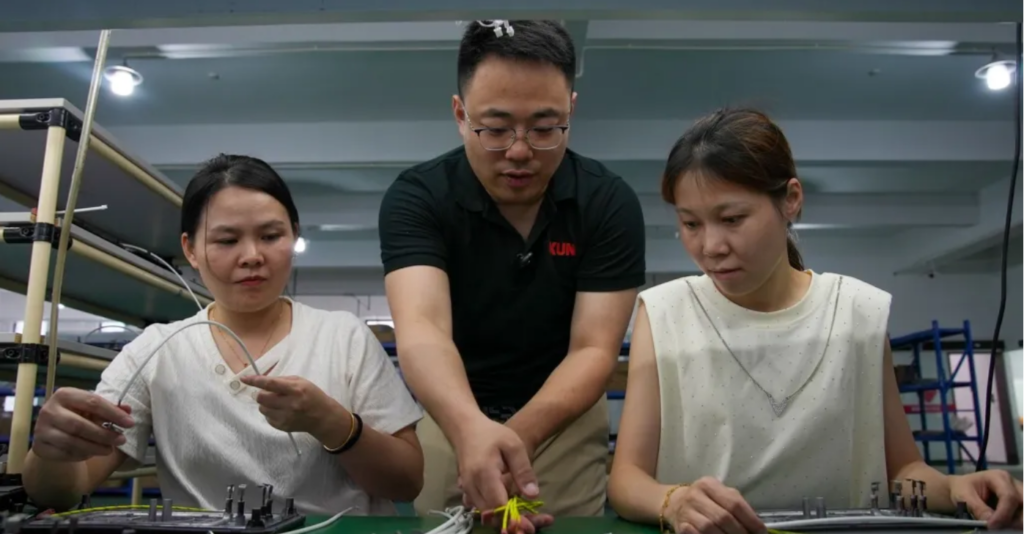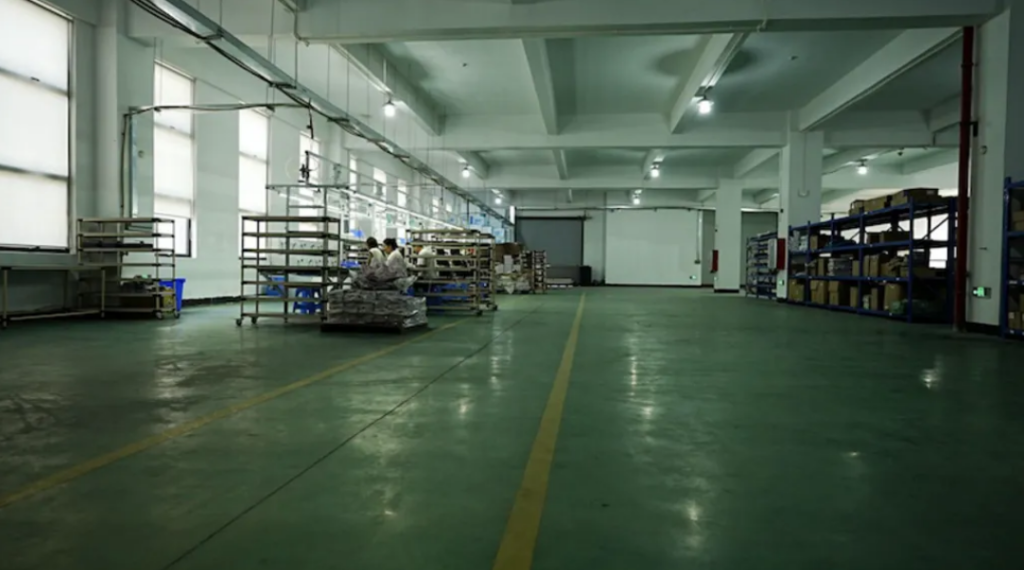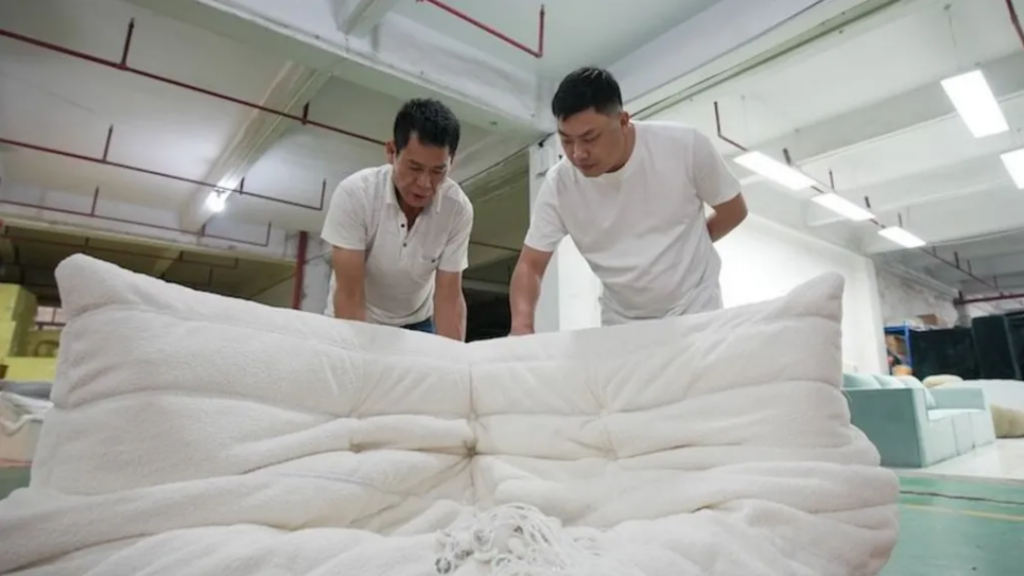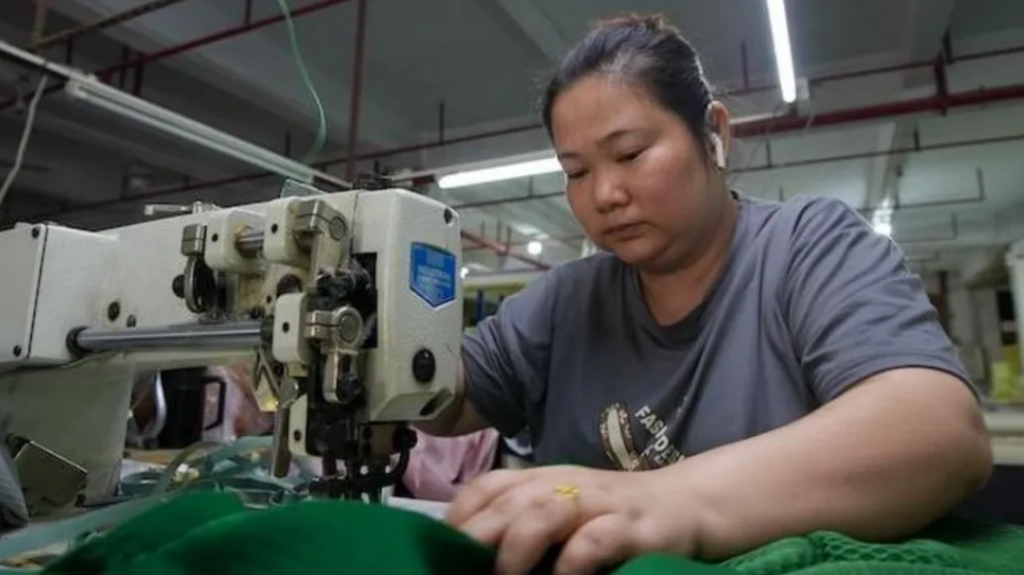
In Foshan, southern China, a significant empty area marks where high-end air fryers destined for the US market should be undergoing welding. Derek Wang’s innovative air fryer models, controllable via smartphones and capable of baking, roasting, and grilling, had impressed his American clientele. However, the imposition of Donald Trump’s “Liberation Day” tariffs on April 2nd, which were set to reach 145% on all Chinese goods entering the US, led his clients to halt production. “I tried to keep smiling through my anxiety for the sake of my 40 workers,” Wang shared with the multinational NEWS
On Wednesday, following the implementation of a deal aimed at easing the trade war, Wang reported that his US buyers had reinitiated contact. While some tariffs remain in place – a 30% tax on all Chinese goods entering the US and a reduced 10% levy on American goods entering China – this unexpected agreement reached after weekend negotiations in Switzerland has provided a reprieve for factories and businesses. “At this time, our US client is willing to pay for the tariffs. Of course, we had to bargain with them as they asked us to lower some of our costs,” Wang explained.

Derek Wang, who pursued engineering studies in Delaware, USA, dedicated three years to the development of his air fryer model. The initial investment in his company amounted to $500,000, and he described the tariffs as an unforeseen blow.
“It felt like my parents were getting a divorce,” Wang explained. “China and the US are the world’s most significant economic and cultural forces. Their abrupt separation would lead to an unimaginable global landscape. Tariffs as steep as 145% would necessitate a parting of ways.”
However, he added, “There’s a Chinese saying: good fortune emerges from misfortune.”
This strategic shift aligns with Beijing’s belief in its stronger negotiating position with Washington. China possesses alternative markets, and its officials have been actively promoting increased business engagement in regions such as Africa, South America, and Southeast Asia.
Numerous other Chinese businesses have also indicated to the BBC their intentions to diversify away from the US market to lessen their reliance, suggesting a potential long-term shift in the economic relationship between the US and China, perhaps more of a separation than a complete severing of ties.

The MULTINATIONAL NEWS learned that some of these factory workers in Foshan are resorting to sleeping in the park to save money. Many commute to the city from their hometowns, often located hundreds of kilometers away. Nearby hostels offer accommodation for 20 yuan per night, which can equate to at least an hour’s wages, a sum many prefer to save and send to their families.
This situation aligns with the image of China that President Trump’s team has sought to portray: one characterized by slow economic growth, increasing unemployment, and a persistent housing crisis.
However, this assessment might overemphasize Beijing’s economic difficulties. China remains a global leader in the production of electric vehicles and solar panels and is making significant advancements in artificial intelligence.
Chinese officials have consistently emphasized the nation’s resilience to withstand the pressures of an economic conflict. Nevertheless, the impact is keenly felt by some on the ground, which may partly explain Beijing’s recent engagement in discussions with the United States.
This recent “ceasefire” in trade tensions has spurred a surge in orders between the US and China, as businesses cautiously assess its potential duration.

He Ke, known as HK to his American clients, has recalled his workforce from their hometowns to revive his sofa manufacturing business, Gongyuan Furniture.2 The company’s operations had ceased even before Mr. Trump’s tariffs reached the 145% mark.
“We had a day off immediately,” Mr. He recounted. “Once the tariffs reached 50%, we had already come to a standstill. When they hit 145%, conducting business was simply impossible.”
His production line, which once employed around 200 workers, occupied all four floors of his factory building. Since the COVID-19 pandemic, he has only needed one floor and approximately 40 staff. However, he still maintains some notable clients, including a claim that Elon Musk owns one of his sofas.

Some workers have already returned to the factory, where they are preparing a cushioned chair for boxing and shipment using a compressor machine. The steady hum of sewing machines fills the air as workers meticulously stitch fabric to fit memory foam cushions.
“We sense that the global economy is struggling,” he observed. “The domestic economy has also been affected, which impacts the lives of people here. In the past, when we went out, we spent freely, without much concern for price. If we liked something, we bought it. Now, when considering a more expensive purchase, we hesitate and think carefully, because earning money has become more challenging.”
Similar to Mr. Wang and his air fryer business, Mr. He also expressed his intention to diversify his sales beyond the United States. However, he remains optimistic that the world’s two largest economies can reach an understanding within the next three months.
“I am merely a small businessman,” he stated. “But I do understand that the current dynamic between these two nations is temporary. I believe that for their long-term mutual survival, they will inevitably sit down and negotiate.”
